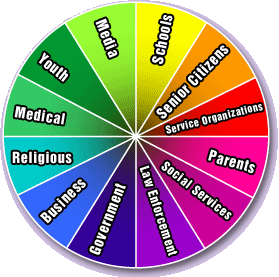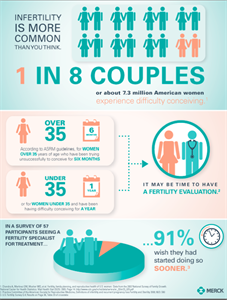Medical Laboratory Professionals Week on April, 2024: Medical Technologist?
Medical Laboratory Professionals Week 2024. National Medical Laboratory Professionals Week (NMLPW) National Medical Laboratory
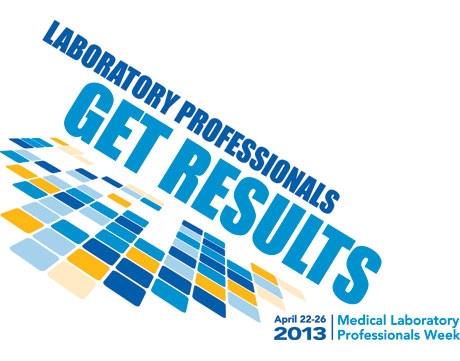
A medical technologist (MT) is a healthcare professional who performs diagnostic analytic tests on body fluids such as blood, urine, sputum, stool, cerebrospinal fluid (CSF), peritoneal fluid, pericardial fluid, and synovial fluid, as well as other specimens. Medical technologists work in clinical laboratories at hospitals, doctor's offices, reference labs, and within the biotechnology industry
Educational requirements
In most four-year degree programs, the student attends classroom courses for 3 years and clinical rotations for 1 year. This combination is called a 3+1 program; there are also 2+2 and 4+1 programs. In clinical rotations, the student experiences hands-on learning in each discipline of the laboratory. Under supervision, the student performs diagnostic testing in a functioning laboratory. Although not compensated, the student usually works 40 hours a week for 20 to 26 weeks, experiencing work as a full-time employee. A medical technologist typically earns a bachelor's degree in Medical Technology (Clinical Laboratory Science) or in a life science, in which case certification from an accredited training program is also required. Limited universities now offer graduate level programs for career changes with undergraduate degrees in disciplines unrelated to science.
In Canada, 3 year diploma college programs are offered with 7 semesters, two being an unpaid internship. The student graduates before taking their standards examination (example: CSMLS) to be qualified as a Medical Laboratory Technologist or MLT.[1] Many MLT's go on to receive their Bachelor of Science after their diploma. There are a select number of university programs that affiliate with a college MLT program allowing the student to graduate with both their degree and diploma.
Certification and licensing
Medical technologists who are certified by and remain in good standing with the American Society for Clinical Pathology (ASCP)[1] are entitled to use the credential "MT" after their names, as well as "MT" for those certified by the American Association of Bioanalysts (AAB)[2]. If credentialed by the National Credentialing Agency for Laboratory Personnel [3], the credential "CLS" (Clinical Laboratory Scientist) may be used. Another certifying agency for medical technologists is the American Medical Technologists located in Rosemont,Illinois. AMT has states societies which publish newsletters, and hold continuing education credit seminars during the year with a national meeting in the summer.
In the United States, the Clinical Laboratory Improvement Amendments (CLIA '88)[4] define the level of qualification required to perform tests of various complexity. A medical technologist holds the highest such qualification, and is in general qualified to perform the most complex clinical testing including HLA testing (tissue-typing) and blood type reference testing.
In addition to the national certification, 11 states also require a state license (i.e. California, Hawaii, Florida, North Dakota, Rhode Island, Tennessee, Louisiana, Nevada, West Virginia, Montana, Georgia.) California, Florida, and New York develop and administer their own examinations. Puerto Rico also has licensure. Most states (except California) require documentation of certification from a certification agency (see infra). You may also be expected to submit fingerprinting, documentation of certification, education, training, and competency. Some states require documentation and completion of a specified number of continuing education contact hours prior to issuing or renewing a license. California does not recognize any certification or any other state license. Check with the state you wish to locate to regarding reciprocity; some will recognize another state's license if it is equal or more stringent.[5]
Specialty areas
Most medical technologists are generalists, skilled in all areas of the lab. However some MTs are specialists, qualified from unique undergraduate education or additional training. Specialties include clinical biochemistry, hematology, coagulation, microbiology, bacteriology, virology, parasitology, mycology, immunology, immunohematology (blood bank), histopathology, cytopathology, genetics, cytogenetics, and IVF labs. Medical technologists with a specialty may use additional credentials, such as "SBB" (Specialist in Blood Banking) from the American Association of Blood Banks, or "SH" (Specialist in Hematology) from the ASCP. These additional accolades may be appended to the base credential, for example, "MT(ASCP)SBB".
Job duties
A medical technologist analyzes human fluid samples using techniques available to the clinical laboratory, such as manual white blood cell differentials, bone marrow counts, analysis via microscopy and advanced analytical equipment. Medical technologists assist doctors and nurses in choosing the correct lab tests and collection methods; labeling and handling spec
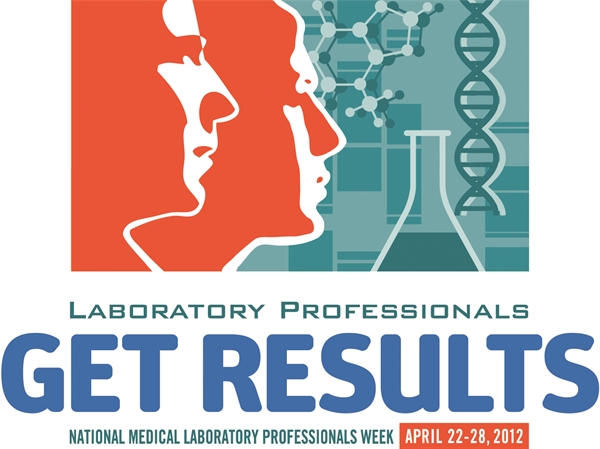
Medical Lab Technician job market?
There is a growing shortage of all laboratory professionals as a result of the retiring "baby boomer" generation (the average laboratorian is about 50 years old). Although there is a demand for MLTs, there is a greater demand for Medical Technologists (MTs).
You should see more positions become available as the economy rebounds from the recession and more baby boomers enter retirement. Although there is a shortage, you will still see many more postings in the nursing sector since there are more nurses and nursing positions in total. So, you may not see as many MLT vacancies, in total, as compared to other health care fields. There are also a lot of positions out there that were once posted but have since been removed due to lack of applicants over a period of several weeks to months. Try checking with HR departments or clinical laboratory management staff. It may be that the shortage isn't being felt in your area.
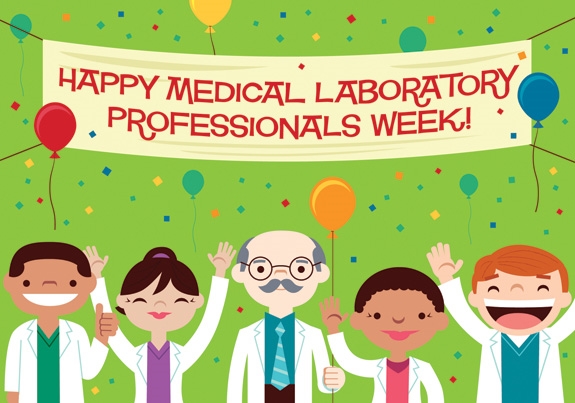
How many years does it take to become a Clinical Laboratory Scientist?
Today is your lucky day - I am a Medical Technologist (the old name for a Clinical Laboratory Scientist) or at least I used to be - I'm now retired.
The first level is a 4 year degree in the Clinical Laboratory Science program: 3 years of academics and a 1 year (50 week) practicum (sometimes know as the Professional Year) in a hospital setting.
You can get a Master's degree in this field of study, and even a PhD if you want to go that far.
I don't know what the pay grade is these days. You can probably scope out the job listings for major hospitals or private medical laboratories. The hospitals generally pay more than the private labs do.
Job growth - these days, the sky is the limit. As the baby boomers get older and retire, there are a lot of positions that are vacant.
Environment - depends upon where you work. If you're in a hospital, you will have access to instrumentation that is relatively up-to-date, depending upon the size of the hospital and budget. As there are new discoveries in the field of medicine, there are also new lab tests that come out, and new instruments to do the testing with.
What do I do every day? It all depends. If you work for a state lab, you may end up running the same tests every day. In a hospital setting, you can work in a specific field - such as hematology, chemistry, microbiology, immunohematology (blood bank), or histology. During the off shifts (evenings or nights), you would be expected to cover more than one area, such as hematology and chemistry - and rotate through the positions. As I said, it all depends - every hospital or private lab, or state lab has a different set up and expectations for the medical technologists.
Your best bet would be to set up an appointment at your local hospital lab, talk to one or more of the technologists there, see what they do, how they feel about their jobs, pay grades, their ambitions in terms of advanced degrees. I know of a couple of technologists who chose to segue into another field - such as a physician's assistant, and one that chose to obtain a medical degree.
I really enjoyed my work as a medical technologist. It was always interesting to see how a diagnosis was arrived at, based upon the lab results - particularly in hematology and chemistry. No two days were alike.
I was involved to a small degree with organ transplants - the donor's body must be kept healthy and in stable condition right up to the moment that the organs are removed. Therefore lab tests were conducted through the night. Whenever there was a code, and I was on deck to draw arterial gas samples, it was a challenge to move in between the doctors and nurses in order to get my sample, and then run it down to the lab to get stat gases done.
Our hospital was a level 1 trauma center, meaning we would get the critical patients from car crashes or other accidents, in which case a medical technologist would need to be stationed in the ER a few minutes prior to the helicopter or ambulance arriving.
In blood bank, it could get crazy. When there was a patient in surgery who had a serious bleed - such as in the cases when emergency surgery was required for a patient with a AAA aka abdominal aortic aneurysm. Many units of blood would have to be cross matched. I remember one patient in particular (when I was still a student) who needed over 70 units. We had to get blood from another hospital in order to meet the need. The patient survived, thankfully.
I could go on and on with stories about my work. I wish you the best in your desire to become one of the unsung heroes who work as clinical laboratory scientists :-)





